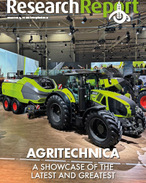This article is 2 years old. Images might not display.
The merger will see Grains Australia taking on the responsibility of pulse technical functions associated with trade and market access, pulse varietal classification and market insights and education on behalf of the Australian pulse industry.
Grains Australia has already formed a Pulse Council, joining its three other commodity councils, to provide strategic advice to its board on pulse industry matters and ensure a smooth transition.
Pulse Australia chair, Georgie Aley, said its peak industry body has represented pulse industry sector members, including growers, agronomists, researchers, merchants, traders and exporters, for nearly 30 years and the merger represented a natural and sensible evolution.
"Pulse Australia has acted as a catalyst for the development of the Australian pulse industry, with Australian pulse growers producing about 4 million tonnes of pulses annually, double that of 10 years ago," Aley said.
"Grains Australia is better resourced, funded and connected with Government and industry and is able to leverage the weight of the full grains industry in delivering required outcomes for the pulse industry.
"Under the merger, I am confident that pulse industry leadership will not only continue, but that Grains Australia will more efficiently and effectively deliver core functions for the Australian grains industry."
Grains Australia chair, Terry Enright, said the merger represented another milestone for the the organisation in delivering value for Australian grain growers.
"As a former pulse grower and former Chair of the Grains Research & Development Corporation (GRDC), I am acutely aware of the importance of this sector and the opportunities it holds for the future," Enright said.
"Grains Australia is well-positioned to lead the delivery of critical services and functions for the Australian grains industry into the future, with pulses playing a critical role in farming systems as well as pioneering export markets such as India, Bangladesh and Pakistan.
"With investment support from the GRDC, Grains Australia is successfully delivering impact to the Australian grains industry and supporting its competitiveness and profitability."
While Grains Australia will be responsible for most technical functions previously undertaken by Pulse Australia, various permits for chemical use (that were held by Pulse Australia with the Australian Pesticides and Veterinary Medicines Authority) will be managed by Grain Producers Australia while pulse trading standards will be managed by Grain Trade Australia.























